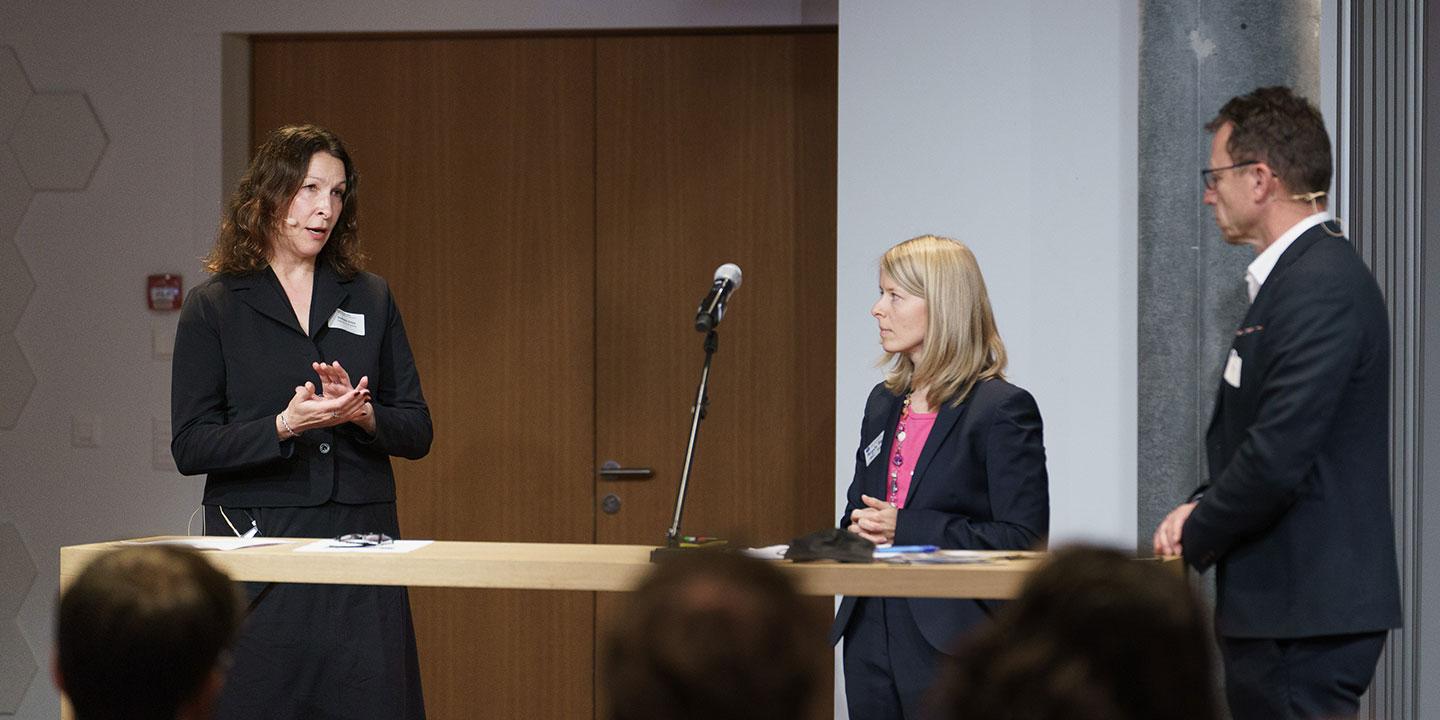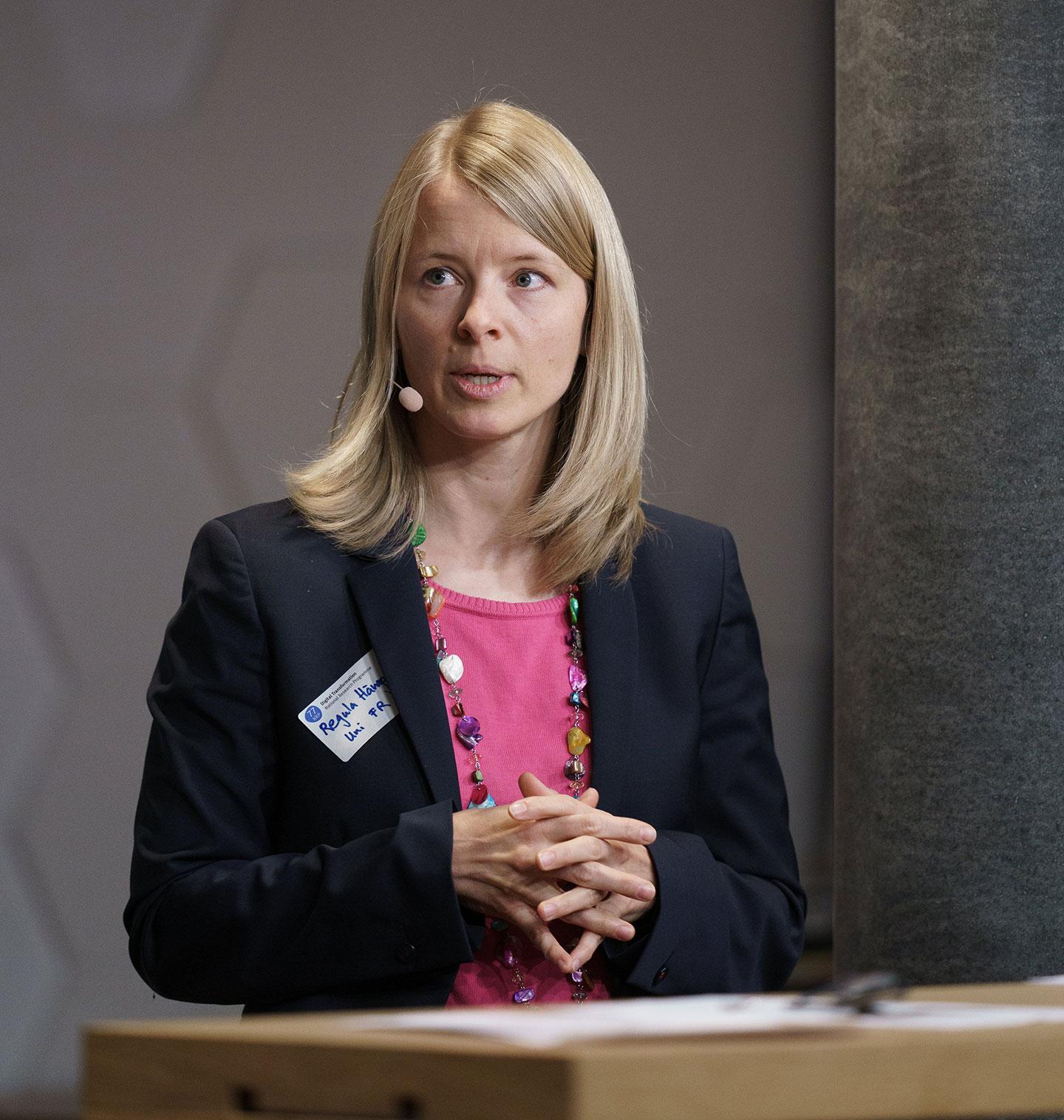Like Lego bricks and track width: norms for digital transformation too

Who drives digitalisation forward? Who lays down the standards that influence our life? And what do these standards and norms have to do with trust?
Seven departments, 26 cantons, over 2000 municipalities – and they are all supposed to be able to exchange data with one another as unbureaucratically as possible. The task facing Erica Dubach and her "DTI - Digital Transformation and ICT Steering" team at the Federal Chancellery is not easy. It calls for a grasp of the complete picture – and standards. Standards are the basis of efficient collaboration at the technical level – Dubach compares them with Lego bricks, whose precisely defined dimensions and properties mean they can be used to build all kinds of things.

The introduction of the enterprise identification number (UID) is an example of successful standardisation. It provides a unique identifier for every company entered in the commercial register. According to Dubach's calculations, this streamlining plus centralised data storage can save enterprises over CHF 30 million in administrative costs each year by making trips to the authorities either unnecessary or simpler.

Uniform application programming interfaces – or APIs – allow the flow of data in all directions, just like rail traffic runs more smoothly if all tracks have the same width. APIs also make data freely accessible – not only within the administrative apparatus, but also for researchers as well as private citizens. "An example that most people will be familiar with is Swisstopo," points out Dubach. All of Switzerland's topographic data is available in an app to anyone who is interested. And they can also upload their own data. MeteoSwiss data is also accessible to everyone.

Regula Hänggli, Professor of Political Communication at the University of Fribourg, feels that the exchange with the research community and the general population could go much further. She heads an NRP 77 project that addresses the role played by trust in a functioning democracy. "It is a welcome development that Switzerland's federal government defines specific interfaces as standard," Hänggli finds. "Standards should be benchmarked against the common good and have a positive impact on the population as a whole." But what if smaller businesses – in the agriculture sector, for instance – cannot afford to switch to these standards? Can exemptions from standardisation be obtained, or how are these standards enforced? The federal government can also create incentives to ensure that small or highly specialised administration applications don't get left behind, explains Erica Dubach. Sometimes it is also sufficient to demonstrate that the new norms are in the public interest, she adds. Hänggli suggests that the government could pursue an open-source strategy for APIs and in general. "This way all stakeholders can contribute to leveraging and developing these electronic bricks." Combinatorial innovation and a digital ecosystem are needed. Hänggli adds that the federal government could follow the example of Taiwan, where they have a digital minister who travels to a different region each week to engage citizens in dialogue to ask them first-hand about their concerns regarding digital change. Dubach and Hänggli are also in agreement that the populace should be increasingly involved in federal projects and initiatives.
This insight is based in no small part on the experience with the vote on electronic IDs. The Federal Council and parliament planned to create a state-regulated, secure e-ID under the proposed law. Despite the political community's strong show of confidence, the scheme was shot down. Evidently the opportunity had been missed to convince the public at large of the merits of this digitisation project. There are now plans underway to make a second run at building the necessary trust in this vital undertaking.
NRP project: Trust and legitimation in the digital democracy
After a sometimes difficult start to the research phase due to the pandemic, practically all projects have picked up speed and in many cases have even produced their first interim results. This was the time to bring together for the first time research and practice, to whom the results of a National Research Programme are addressed. At the first programme meeting, personalities from the circle of stakeholders formulated their theses, questions and expectations of NRP 77. Researchers reflected and countered. All in all, it was a day of intensive exchange.
